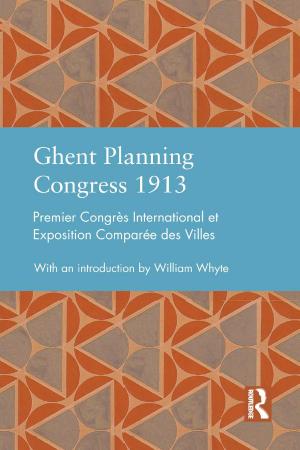Hosted by
Ghent Planning Congress 1913: Premier Congrí¨s International Et Exposition Comparí©e Des Villes
Synopsis
The Ghent Congress on town planning was the first genuinely international conference to address all aspects of civic life and design. Attended by representatives of 22 governments and 150 cities, as well as by hundreds of architects, planners, politicians, and scientists, it marked the culmination of a series of events which helped to form the world of town planning at the start of the twentieth century.
Ghent illustrates three key themes for the history of town planning. First, the Transactions of the Congress include papers from some of the most significant theorists and practitioners of the period, such as Patrick Abercrombie, Augustin Rey, Raymond Unwin, and Joseph Stí¼bben.
Second, the Congress as a whole reflects just how global the business of town planning had become by 1913: papers and exhibits included studies of colonial projects as well as European designs. The delegates themselves provide wonderful evidence of a transnational process at work.
Finally, the text brilliantly illuminates the way in which town planning was critically linked to other reformist movements of the era. The whole event, like the International Union of Cities that it spawned, was the product of the peace movement. Even as war draw nearer, the International Union was being spoken of as a future world government. Significantly, one of the organizers of the event — Henri La Fontaine - won the Nobel Peace Prize in 1913.
The Premier congrí¨s international et exposition comparí©e des villes is a major publication, but it is one that is now almost impossible to obtain. This republication, a century after this seminal event, will be of considerable interest not only to those who work on town planning, but also to transnational historians and writers on the peace movement more generally.

